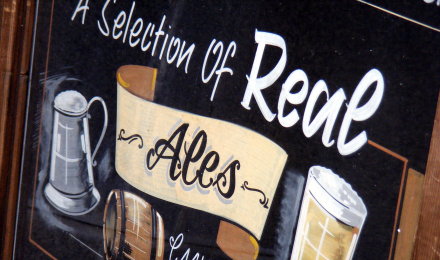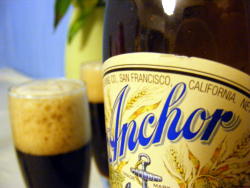
A recent post of ours about the Good Beer Guide set off a wider debate about CAMRA‘s focus on cask ale, at the expense of other good beer, a point which Tim picks up here.
Just after we started blogging, we posted about the use of the word “craft” beer, and why we preferred it to “real ale” as a concept. Re-reading it, I would still agree with most of the sentiments but I feel the need to stick up for real ale a little more now than I did then.
As a beer lover, I adore the fact that my favourite pints in the pub will rarely taste exactly the same. I like that the fact that you can get amazing-tasting beer at relatively low strength — I can’t think of many sub 4% “unreal” beers that taste great, whereas I can think of many wonderful cask ales at that strength.
Sometimes we think that the UK could do with a “craft beer revolution”, one that focusses on the quality of the beer, not the way it’s produced. Certainly beers like Sierra Nevada and Brooklyn Lager which are unreal by the time the hit the UK are fantastic gateway beers for people who aren’t that bothered about beer.
However, if there is less emphasis on cask ale, is there a danger that it will decline again? As Jeff and Dave and various others point out, looking after and serving real ale is a chore. Why would you do it unless you loved the stuff? It would seem to be an obvious thing to get rid of if you run a pub company — as Jeff has pointed out, the margins are often worse, particularly for beer from small breweries.
So why do pub companies bother stocking cask ale (albeit often a limited selection) and how come so many landlords sell it even though they “don’t personally touch the stuff“? Could it be something to do with a national pressure group that rewards you in publicity for stocking the stuff?
I do get frustrated with narrow-minded attitudes towards lager, and what I call the “four legs good, two legs bad” dogma that many CAMRA members seem to subscribe to. But we’re still members of CAMRA (albeit not active ones) because we would still like to see more cask ale around and a greater choice in the places that do stock it. And while we hate the “take it to the top” campaign, there is a lot of other grass-roots stuff going on (“LocAle” springs to mind) that is helping to promote good beer in a wider variety of places.
Boak



